Highly anticipated: After Intel’s upcoming Core i7-9700K appeared on Geekbench last week, a full review of the 9th-gen chip has revealed more benchmark scores. We've also seen new numbers for the Core i9-9900K and Core i5-9600K.
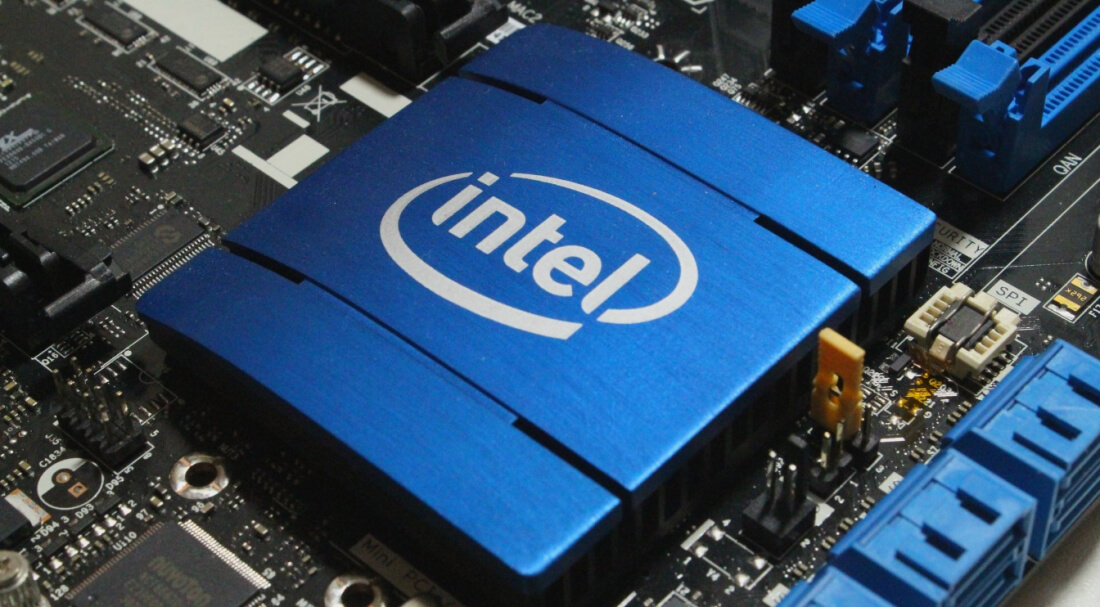
The previous Geekbench score showed the Core i7-9700K gaining a 6297 single-core score and 30152 in multi-core performance. While this marked a roughly 20 percent improvement over the Ryzen 2700X, it was just 4 percent better than the 8700K.
Spanish-language website El Chapuzas Informatico has what is alleged to be 'the first Core i7-9700K review.' It confirms that it is a 14nm CPU without hyper-threading (8-core/8-thread) and has a 4.9GHz single-core boost clock and 4.6GHz boost across all cores.
The benchmarks were run using an upcoming Z390 motherboard, MSI’s GeForce GTX 1070 Gaming Z, and an unspecified amount of G.Skill TridentZ DDR4-3600 RAM. While Intel’s chip came top in many of the results—it was the fastest in all the gaming tests—there were some benchmarks where it was beaten by AMD’s Ryzen 2700X. There are also many cases where the 9700K shows only a marginal improvement over the 8700K.
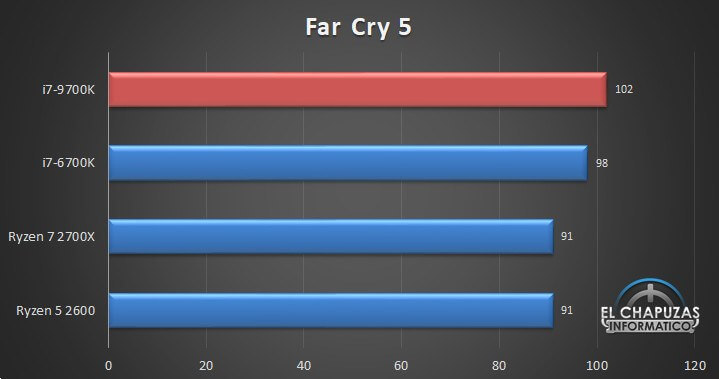
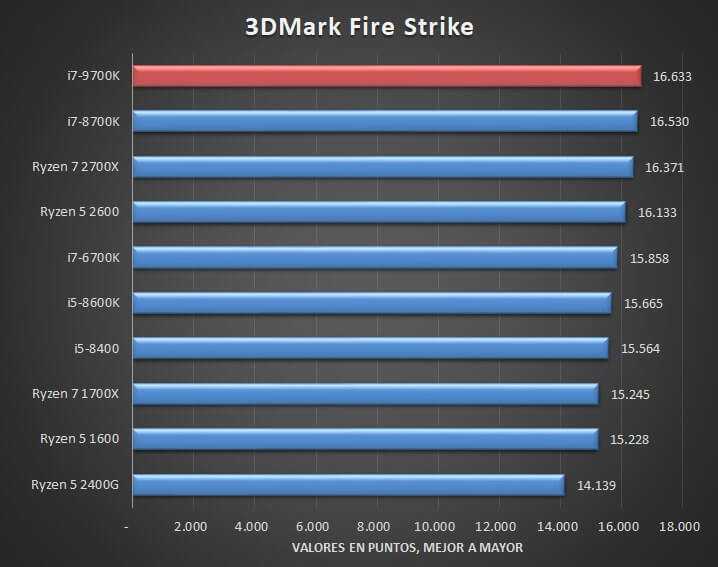
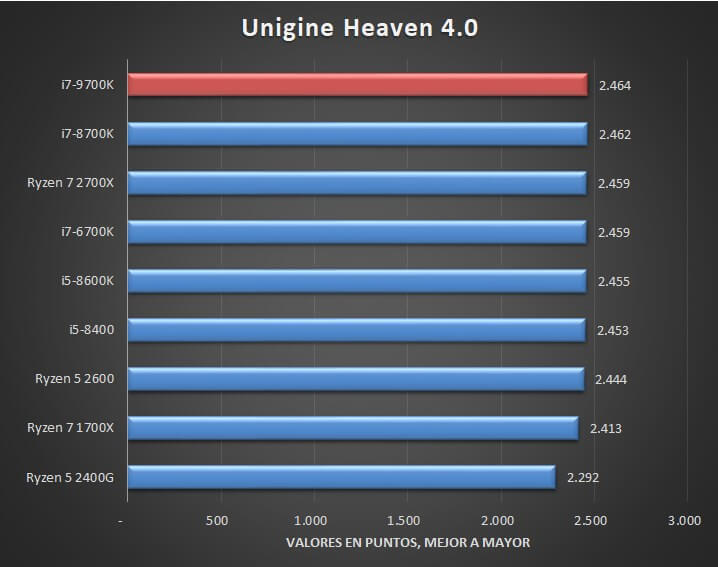
The publication was able to overclock the chip to 5GHz (all cores) on 1.4 Volts. In late August, leaks showed it reaching 5.5GHz on all eight cores using water cooling with the voltage set at 1.536V on a Z370 mobo.
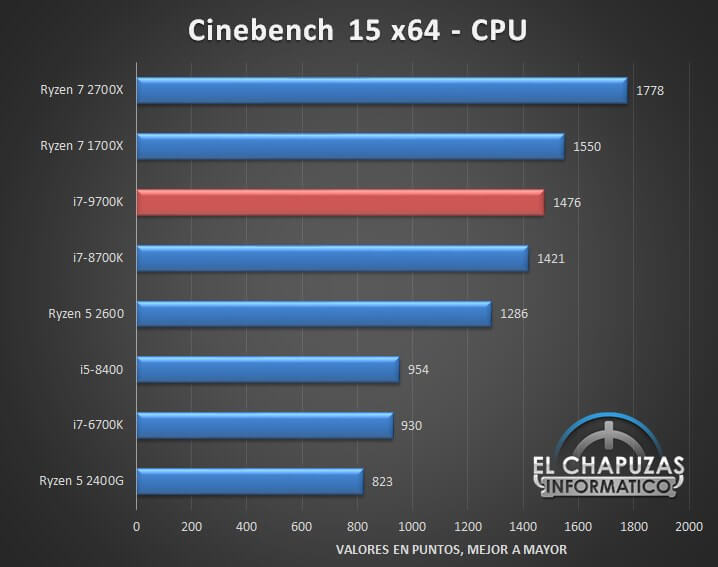
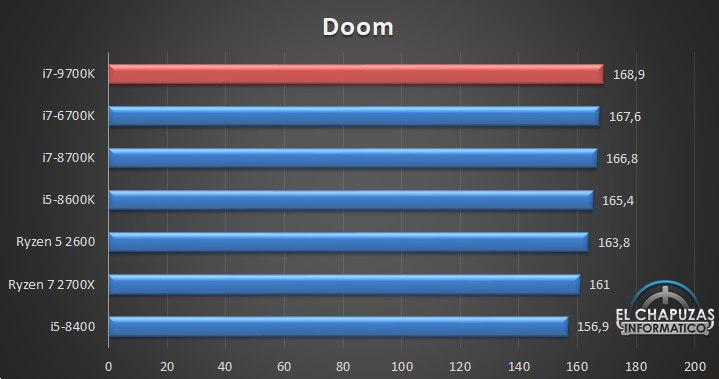
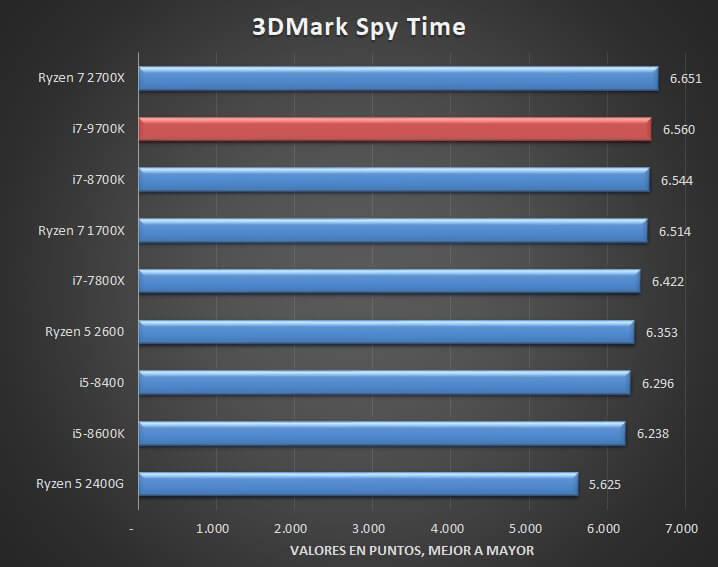
As always, it’s best to take all this with a pinch of salt. It’s better to wait until the Coffee Lake Refresh chips arrive, supposedly next month, to see more reviews and draw solid conclusions. But the 9700K, which is expected to cost around $400, could become the CPU of choice for gamers. Check out all the benchmarks here.
In other Coffee Lake Refresh news, Geekbench numbers for the Core i9-9900K and Core i5-9600K have leaked. The high-end 8-core/16-thread chip managed 6248 points in single-core and 33,037 points in multi-core benchmarks, while the 6-core/6-thread CPU hit 6,027 and 23,472 in the same tests. The current Core i7-8700K flagship, for comparison, gained 5,508 single-core and 25,034 multi-core results. These were achieved using a Z370 mobo, so the numbers could improve when running on the Z390 platform.
https://www.techspot.com/news/76366-first-core-i7-9700k-review-hits-web-more.html